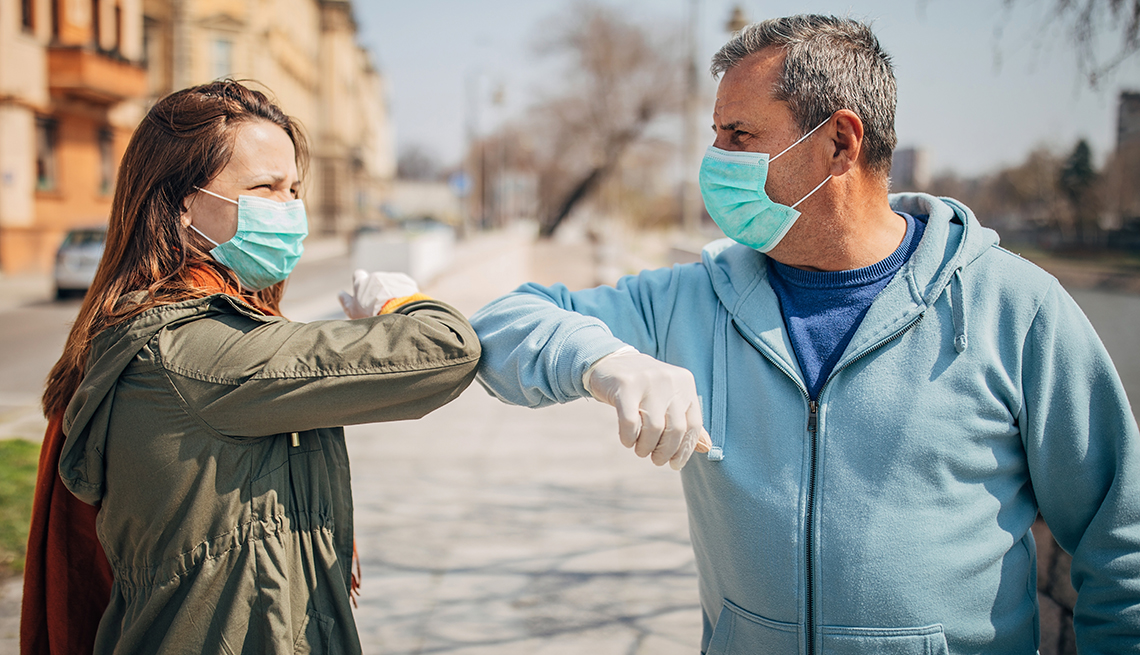New Etiquette Rules in a COVID-19 World
Here's how the pandemic has changed our manners — maybe for good
by Sarah Elizabeth Adler, AARP, May 15, 2020

A firm handshake, a kiss on the cheek, the clink of glasses at a dinnertime toast — these are among the polite gestures now on hold indefinitely because of social distancing guidelines intended to keep people safe during the coronavirus outbreak.
But etiquette experts say that doesn't mean good manners have gone by the wayside. Instead, they point to safer ways of showing respect for one another, like swapping out handshakes for head nods, that have emerged in the past few months — and that will likely remain with us for some time to come.
"Etiquette is always evolving, it's never set in stone,” says Massachusetts-based etiquette consultant Jodi Smith. “What's set in stone is the idea of respect for myself and respect for others.”
As long as showing respect means keeping our distance and avoiding large gatherings, here's what Smith and others say to expect when it comes to minding your manners in the COVID-19 era:
Handshakes and greetings
Myka Meier, author of Business Etiquette Made Easy, notes that few people are likely to be shaking hands at a time when staying 6 feet apart is the norm.
Even something like an elbow bump means making contact with another person and might not be appropriate in more formal settings like business meetings.
Instead, Meier recommends two totally contactless greetings: what she calls “the grasp and greet” — clasping your hands together and putting them over your heart as you approach someone — and the “stop, drop and nod” — standing still, dropping your hands and putting them behind your back (so you're not tempted to reach out for a handshake), then nodding to say hello.
Invitations, events and RSVPs
Many large-scale gatherings and events have already been cancelled, but if you've RSVP'd “yes” to something that's still scheduled to happen, international etiquette expert Sharon Schweitzer says the rules around declining have become a bit more flexible.
"Long-standing etiquette and social graces have always dictated that if you accepted the RSVP and said you would attend, you must,” she says. “However, in light of the coronavirus, you can change your RSVP to decline if you cannot attend.”
In the case of events like weddings, she says, be sure to send a gift anyway — and change your response promptly out of respect for the host (you might also want to write a personal note expressing how much you regret having to decline).
When it comes to saying no to casual invitations, like neighbors asking you to join them 6 feet apart in their backyard, the experts recommend having a go-to script to politely decline. Smith recommends something like: “I'm so thrilled that you invited me, but I'm just not ready yet."
Having a few stock phrases in mind can also serve you well when out and about. Schweitzer's script for keeping your distance from a friendly passerby while walking the dog is something like: “Fluffy and I are both social distancing. Please greet us from at least 6 feet away. We look forward to seeing you after this resolves. You'll be more than welcome to pet her then!"

